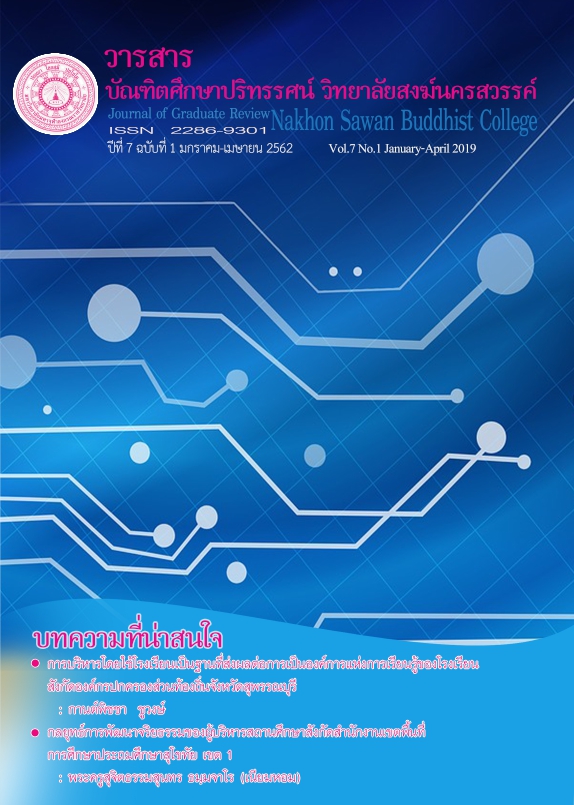An Analytical Study of Mindfulness for Development of Life – Quality According to Mahasatipatthana Sutta การศึกษาวิเคราะห์สติเพื่อการพัฒนาคุณภาพชีวิตตามหลักมหาสติปัฏฐานสูตร
Main Article Content
Abstract
This research objectives are (1) to study mindfulness in Mahāsatipatthāna Sutta and (2) to study the development of mindfulness for development of life-quality according to Mahāsatipatthāna Sutta. This was a qualitative researcher to collect all data from academic paper, books, and researches relating to Mahāsatipatthāna Sutta.
A result of this research study was found that mindfulness in Buddhism was divided into two types: Sammāsati—right mindfulness and Miccāsati—wrong mindfulness. The right mindfulness was actually divided into three levels: (1) the low level—consciousness of daily activities, (2) the middle level—consciousness of making merit, and (3) the high level—consciousness of Four Foundations of Mindfulness. A result of developing mindfulness was free from the fetter of defilement and craving because Four Foundations of Mindfulness was a unique way or only one way to help people to resolve all problems by considering four bases: a body, feelings, mind and mental objects as an origin and cessation of problems. The insight meditator ought to be mindful to make mind calm (Samatha) until reaching the state of knowing everything as it really was (Vipassana). This aspect could change the insight meditator from thinking to knowing and then, he could control his thinking and stop thinking mixed with unwholesomeness. When he had practiced it continuously, he saw the real change of life.
Mindfulness applied to the daily development of life-quality brought about the following aspects. Firstly, it was applied to the family. When mindfulness was perfectly practiced, it caused clearly understanding of life, love, and loving kindness towards the other members of family. Secondly, Mindfulness was applied to daily works. If one had mindfulness in works to know things as they really were, one was free from problems, and mistakes. It was a way to practice Dhamma while a person was working. Moreover, it was a way to make the atmosphere of working attractive and interesting. Finally, mindfulness was applied to the recent Thai societies that had greatly different ideas. Thus, people ought to develop mindfulness and their lives until seeing the worthiness and value in their lives that would be developed as Dhamma governance by means of a base of morality, ethics, reasonability, and great respect to each other.

